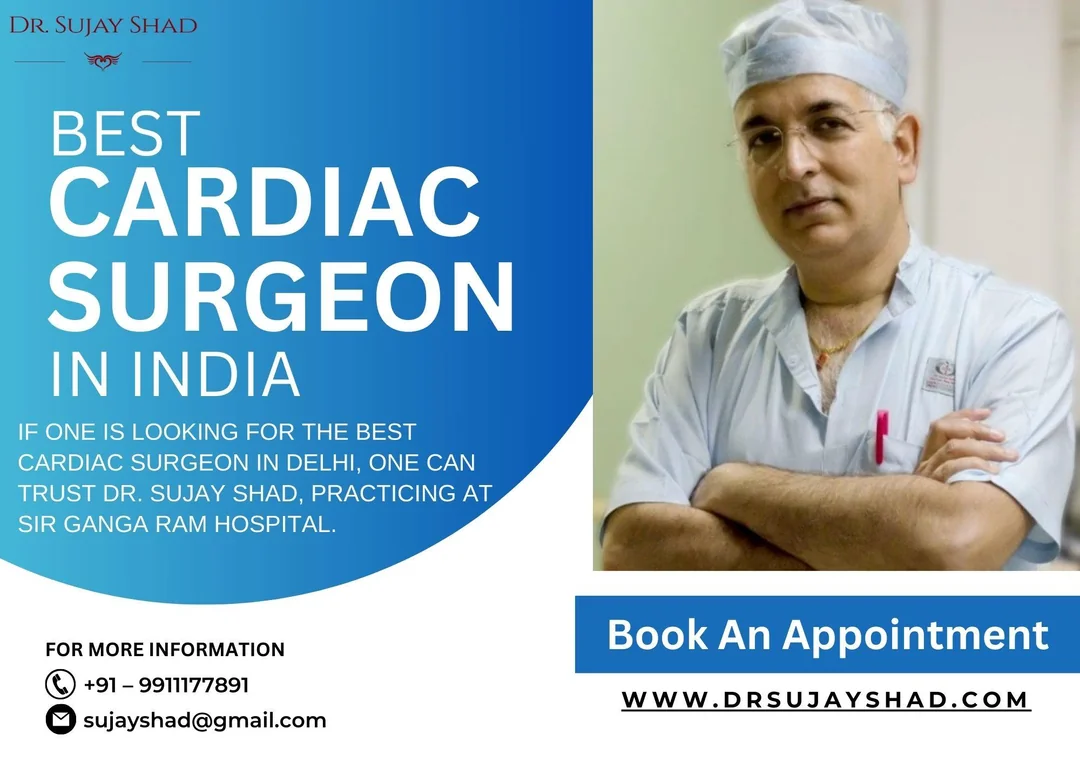Ventricular Assist Devices (VADs): A Lifeline for Heart Failure Patients

Patients who have experienced heart failure due to impaired, diseased, or damaged heart valves require surgical intervention. Damaged valves cause backward or restricted blood flow, resulting in life-threatening conditions. Sometimes, oral medication is not sufficient to subside the symptoms; in such cases, the patient requires a ventricular assist device (VAD) to be implanted in the damaged valve. The device helps restore impaired blood flow, offering patients a second chance at life and improving their overall well-being. This blog addresses how VADs work, types of VADs, benefits, and risks; insights from the best cardiac surgeon in India. Continue reading!
How Do VADs Work?
VADs work by taking over some or all of the work that the heart would normally do to pump blood throughout the body. Depending on the type of VAD, the device may:
-
Assist the left ventricle (LVAD): This is the most common type of VAD, used to support the left side of the heart. It helps pump oxygen-rich blood from the left ventricle to the rest of the body.
-
Assist the right ventricle (RVAD): This device helps pump blood from the right side of the heart to the lungs for oxygenation.
-
Bi-ventricular Assist Device (BiVAD): This device supports both the left and right ventricles when both sides of the heart are failing.
Types of Ventricular Assist Devices
There are two main types of VADs. These types are as follows:
-
Pulsatile Flow VADs
-
Continuous Flow VADs
Benefits of VADs
The benefits of ventricular assist devices for heart failure patients are as follows:
-
Improved Quality of Life
-
Increased Survival Rates
-
Reduced Hospitalizations
-
Potential for Heart Transplant
-
Destination Therapy
Risks associated with VADs
While VADs are life-saving devices, they do come with some risks, such as:
-
Infection
-
Blood Clots
-
Device Malfunction
Get expert consultation from the best cardiac surgeon, Dr. Sujay Shad, at Sir Ganga Ram Hospital, New Delhi!
Ventricular Assist Devices (VADs) have revolutionized the treatment of advanced heart failure, providing a critical lifeline for patients who are not candidates for a heart transplant or need temporary support while awaiting a donor's heart. With their ability to improve quality of life, extend survival, and reduce hospitalizations, VADs are truly life-saving devices. However, they do require careful management and monitoring to ensure the best outcomes. If you or a loved one is facing heart failure, consult with Dr. Sujay Shad at Sir Ganga Ram Hospital. The surgeon is the best choice for Heart Failure Surgery in Delhi. For more information, book an appointment today!
- Questions and Answers
- Opinion
- Motivational and Inspiring Story
- Technology
- Live and Let live
- Focus
- Geopolitics
- Military-Arms/Equipment
- Seguridad
- Economy
- Beasts of Nations
- Machine Tools-The “Mother Industry”
- Art
- Causes
- Crafts
- Dance
- Drinks
- Film/Movie
- Fitness
- Food
- Juegos
- Gardening
- Health
- Home
- Literature
- Music
- Networking
- Other
- Party
- Religion
- Shopping
- Sports
- Theater
- Health and Wellness
- News
- Culture

